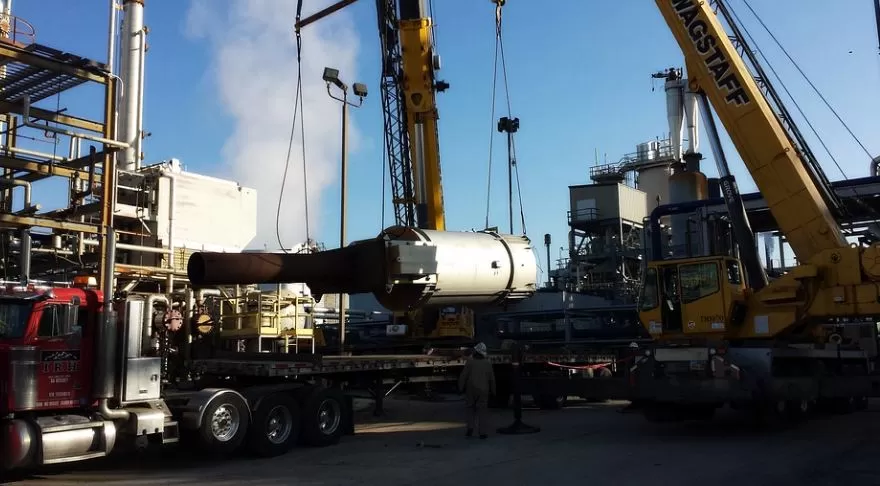What Are The Biggest Dangers Of Trucking In An Oil Field?
Transportation is vital to the oil and gas business. Transporting commodities, materials, and equipment to and from drilling sites and refineries is a huge responsibility. Despite its significance, trucking in an oil field may be exceedingly hazardous and riddled with risks that can be avoided. In this article, we will explore the most dangerous aspects of trucking in an oil field as well as measures that can be taken to reduce the likelihood of accidents and deaths.
Hazardous Road Conditions
The dangerous road conditions that truck drivers encounter are some of the greatest risks of hauling in an oil field. The roads in these regions are often poorly maintained and unsafe during inclement weather. Mud, snow, and ice may also make it difficult for drivers to operate their vehicles on oil field roads. Moreover, the roads may be small and twisting, making it challenging for vehicles to maneuver and avoid obstructions.
Overloading of Vehicles
Overloaded vehicles are a further hazard of hauling in an oil field. Trucks in oil fields often transport big loads, which places a great deal of strain on the vehicle and makes it harder to handle. Additionally, overloading increases the likelihood of a tire blowout, which can result in an accident. In other instances, vehicles that are overloaded with dangerous chemicals pose an even greater risk to the driver and other motorists.
Driver Fatigue
Driver fatigue is another major concern in the oil field trucking industry. Truck drivers often work long hours, and the monotony and stress of their jobs make it difficult to remain awake. Lack of sleep impairs a driver’s ability to make rapid judgments and respond to driving circumstances, increasing the likelihood of an accident. To reduce the danger of fatigue, it is essential for drivers to get sufficient rest and take frequent breaks.
Equipment Failure
Equipment breakdown is another major concern of trucking in oil fields. In these regions, trucks are often exposed to rugged terrain, severe weather, and big loads, all of which can cause equipment failure. This sometimes results in accidents and, in certain situations, the release of dangerous chemicals. To reduce the likelihood of equipment failure, trucking businesses must constantly maintain and repair their vehicles.
Fire and Explosions
In the oil field trucking industry, fires and explosions are also serious concerns. Trucks in these regions often transport flammable and explosive products, which, in the event of an accident, represent a major danger. A spill of dangerous chemicals might result in a fire or explosion, which can cause considerable damage and spread rapidly. When carrying hazardous chemicals, trucking firms must strictly adhere to safety procedures and take the necessary steps to reduce the danger of fires and explosions.
How to Prevent these Dangers Of Trucking In An Oil Field?
To mitigate the risks associated with transportation in an oil field, both trucking businesses and the authorities must take appropriate action. Here are some strategies for mitigating these risks:
- Improved Road Maintenance: The authorities can play a vital role in reducing the risks associated with trucking in an oil field by ensuring that the roads in these locations are well-maintained and devoid of hazards. This may involve routine road maintenance and repair, as well as the installation of safety elements like guardrails and reflective markings.
- Strict Vehicle Maintenance: By ensuring that their vehicles are well-maintained and often inspected, trucking businesses may lessen the hazards of transportation. This might involve routine inspections of the engine, brakes, tires, and other important components, as well as maintaining the overall condition of the vehicle.
- Driver Training: Trucking businesses can reduce the risks of transportation by providing their drivers with adequate training. This may include instruction on how to handle dangerous products, traverse challenging routes, and prevent driver tiredness.
- Weight Limits: In addition to maintaining rigorous weight limits for their trucks, trucking businesses may reduce trucking-related hazards. Overloading a vehicle can increase the danger of an accident and cause damage to the vehicle, hence it is crucial that trucks are not carried over their weight restrictions.
- Hazardous Material Handling: To reduce the likelihood of fires and explosions, trucking firms must instruct their drivers on the correct handling of dangerous commodities. This may involve instruction on the safe transportation of flammable and explosive items and the use of safety equipment like fire extinguishers.
- Rest Breaks and Sleep Regulations: The authorities can also help reduce the risks of trucking by regulating the number of consecutive hours a truck driver can work without a break. This will greatly help in preventing driver tiredness and ensuring that drivers are well-rested prior to getting behind the wheel.
- Technology: Finally, technology can also help reduce the risks associated with transportation in an oil field. Using GPS tracking, for instance, may assist trucking businesses in monitoring the whereabouts of their vehicles and ensuring that they are taking the safest routes.
The Bottom Line
Trucking in an oil field can be extremely dangerous, but with proper precautions and safety measures in place, the risks can be minimized. By implementing these measures, trucking companies can ensure that their drivers are protected and that the oil field trucking industry remains safe and efficient.










